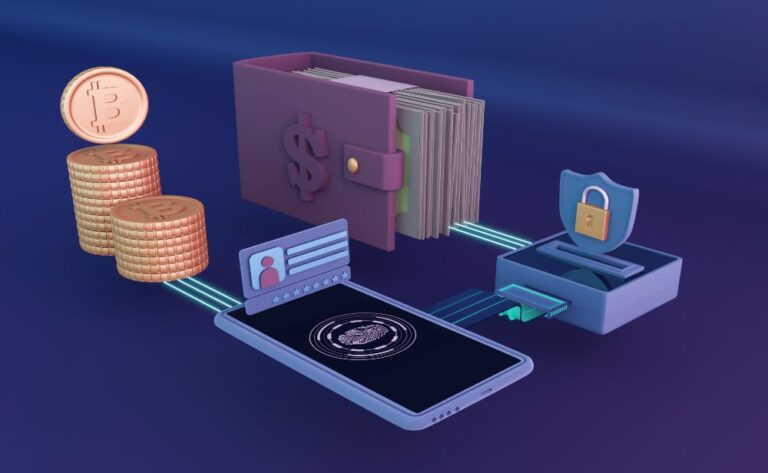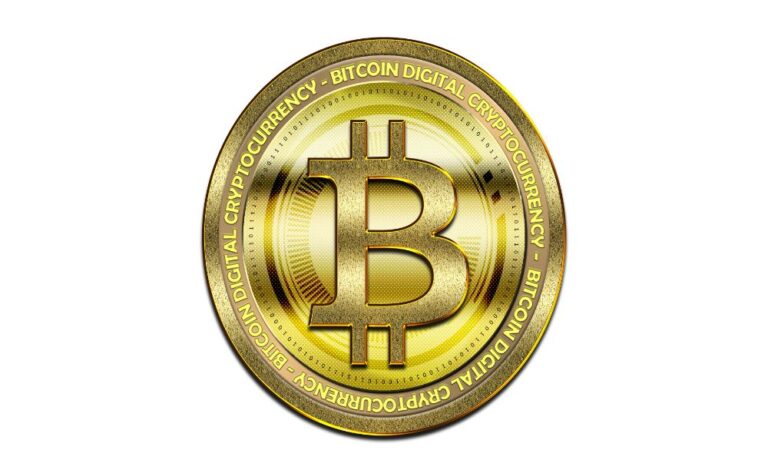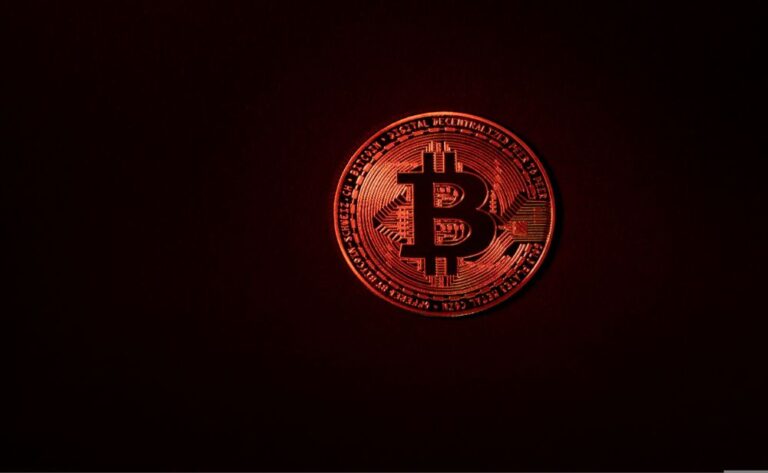Crypto Wallets, Passwords, And Security

Best Wallet for Crypto security
High-security hardware wallet
• Covered hundreds of different coins
• Compatible with numerous external software wallets
• Excellent value for the security you receive
Understanding wallets and selecting the best cryptocurrency storage
Your key to owning, trading, and conducting transactions with cryptocurrency is a crypto wallet. Being your own bank is possible. A cryptocurrency wallet’s key characteristics are:
- Provide secure access to your cash using uncrackable cryptography;
- After each transaction, connects to the blockchain to update your balance;
- Visualizes your balance or cryptocurrency holdings, together with fiat price information;
- Determines the most advantageous transaction costs while sending money;
- Records every transaction you make on the blockchain;
- Some wallets include built-in capabilities for trading or purchasing cryptocurrency assets.
A wallet looks similar to the majority of payment apps and will display clear pricing information in dollars or another significant fiat currency. A wallet may be basic, allowing merely spending transactions, or it may contain trading tools or portfolio management, depending on the features. On the Ethereum network, several wallets are designed to work with distributed applications, currencies, and decentralized projects.
How Do Wallets Function?
It’s vital to understand that the wallet is only an interface via which you can access your coins and tokens; it does not really store them. Your currency is kept on the blockchain (ie online). This has a number of significant repercussions:
1. You normally receive a seed phrase (for example, 20 words to write down) when you set up a wallet that identifies you.
2. The wallet then generates coin addresses that can only be managed by your wallet.
3. If you have the original seed phrase, you can recreate the wallet or restore it.
4. In contrast to a bank, there is no assistance or support available, therefore you must be careful not to misplace your wallet or seed phrase.
As an illustration, consider installing a wallet on your phone:
- You haven’t lost your coins if you lose your phone and therefore your wallet; instead, you’ve only lost access to them.
- If someone is able to access both your wallet and your phone (both of which should be password-protected), they will have complete control over your coins. They can transmit the balances to their wallet and disappear forever.
- If you know your seed phrase, you can set up the same wallet on an other device (a different phone, computer, etc.), and the seed phrase will grant you access to those coins once more.
- Even if the coins still exist, there is no way to recover the wallet without the seed phrase, making your coins permanently lost to you and everyone else.
According to estimates, up to 20% of bitcoin has already been gone.
The Procedure for Storing Cryptocurrency In A Wallet
When purchasing cryptocurrency for the first time, you’ll typically require a “fiat on-ramp,” or a mechanism to convert your local currency (such as pounds, dollars, or euros) into digital assets like Bitcoin and Ethereum. Any exchange or brokerage you select will show those assets as a balance when you make a purchase.
You are free to keep such assets in your exchange wallet. This carries some risk because you are depending on the exchange to keep your funds safe and always provide you access to them, but on the plus side, under normal conditions, the coins are always available for exchange back into currency. Keeping those coins on the exchange while waiting for a favorable time to trade may take months or more, putting them at danger.
It is essential to transfer your funds to a wallet that you have complete control over if you want them to be safer. Both a mobile wallet and a desktop wallet app like Exodus will work for this task. Such wallets are more resistant to theft and quick enough to experiment with cryptocurrencies in the short run.
Let’s say you wish to accumulate BTC over a period of time, perhaps even as a bequest for your children or grandchildren. The wallet would therefore be “offline” and not connected to the internet, leaving it potentially vulnerable to hackers or trojans. This is a type of safe cold storage. There are numerous ways to store the private key or seed phrase in cold storage, including printing it on paper, putting it in a hardware wallet, or having it physically engraved in metal (sounds extreme but if there is a fire and your seed is on paper…)
Keychain Passwords
Your private key is kept in wallets, which are normally safe and only accessible by those who have access to the app. Apps for wallets are therefore password-protected. This password, unlike the majority of others you might choose, is practically the only thing standing between whoever has access to your device and your money! As a result, using a strong, complex password will improve your quality of sleep.
Your password might be brute-forced if your device is stolen or compromised. A strong password could make things much trickier.
First and foremost, keep in mind that wallets like Exodus do not store a backup of your password for recovery. For this reason, using a safe password manager is the best option.
Create a unique password by not using it for another login. Additionally, ensure that the password is lengthy—at least 16 characters, ideally up to 64—and unpredictable. You should use random characters rather than words that are obvious, and you can also use random capitalization and special characters.
The Exodus team advises against using the same or a password that is similar to your Google login information. A hacker might obtain all of your passwords and compromise any crypto wallets with inadequate security by gaining access to Chrome’s password manager.
Wallet Styles
The main wallet varieties available are as follows:
- Paper money belts
- Equipment wallets
Smartphone wallets
- Custody based on exchange
- Digital wallets
Desktop, internet, and off-the-shelf wallets
- Memorization wallets
There are numerous brands and versions of the wallets. Some companies became market leaders over time, while other wallets stopped offering their services. Every time a user creates a private key or a seed phrase, it can be exported to a different kind of wallet in order to view the balance and access the money.
Banana Wallets
The public key is printed out as a code in a paper wallet. It also has a portion that needs to be kept a secret because it contains the private key. A paper wallet can be lost or damaged and is only as safe as the location in which it is maintained. A wallet could be printed for cold storage on a more robust material.
However, there are several dangers associated with paper wallets.
- It might be harmed and become unreadable.
- You still need to find a secure place to put it, because else someone could take a picture of it in your home and steal all of your money!
- You must securely print it. How do you know that an internet program that may have created the image above didn’t simply duplicate the data? There are many such scam websites on the internet that seem trustworthy and helpful but are actually doing bad things.
Device Wallets
Hardware wallets provide a higher level of security since they demand physical external verification of all transactions using a device that looks like a USB drive but also has a screen and buttons. They work with software wallets, but they cannot be remotely compromised because an intruder cannot physically press the buttons on the gadget.
Phone Wallets
For new users, a quick and simple option is a mobile wallet like Mycelium or any specialized wallet for altcoins. The wallet functions as a “light” program that requests data from a server, not downloading the blockchain’s history.
Exchanges strive to provide a simple, seamless wallet experience. All of the assets that are carried by reputable brokerages like Kraken or Binance have interfaces available. The capacity to exchange or trade assets right away is one benefit of those wallets.
Trade wallets
The capacity of exchange wallets to generate passive income varies. For instance, Binance has made sure that prizes for holding particular coins and tokens are distributed as well as passive income.
Additionally, exchange wallets might not support hard forks like the one that led to Bitcoin Cash. There was no coordinated reaction to the goodwill gesture in 2017 of awarding BCH to BTC holders. In 2020, there won’t be as many hard forks of Bitcoin and other coins, therefore storing coins on exchanges won’t result in a loss of that kind of money. On the other side, the ability to keep money and purchase fresh assets right away is a key benefit of exchange wallets.
Exchange wallets have the disadvantage that some services could be unavailable due to maintenance. Exchange wallets are not appropriate for making payments or spending money because there may be restrictions on withdrawing smaller quantities of cryptocurrency. Additionally, you must transfer funds to their own wallet if you need to transfer them to another exchange. Losses could result from sending money between exchange-based wallets.
Digital wallets
Online wallets are nimble, quick technologies that have been uniquely fitted to tokens. Access to the whole Ethereum ecosystem is available right away after setting up MyEtherWallet or MetaMask. Those wallets have the benefit of being comparatively simple to use. However, the danger of phishing and false login URLs is their main drawback.
Over the years, various clone sites have been created, including MyEtherWa11et, to deceive users into entering their passwords into phony websites created solely to capture them. The link might appear in emails or on social media, all with fantastic design and language, and you wouldn’t realize you were on the wrong website until you looked at the URL bar of your browser.
It is wise to avoid clicking on links you don’t fully trust in all facets of digital life, but because there is more at stake with cryptocurrency management, caution is advised.
Computer wallets
Desktop wallets offer anything from basic to more complex user interfaces, making them suited for practically all users. For further security, such wallets can be utilized offline. For simplicity of usage, the hardware wallets from Trezor and Ledger both feature their own enhanced desktop interfaces. A hardware wallet can also be connected to a desktop wallet. The balances on your Trezor can be viewed in Exodus.
Leading Wallet Brands
Exodus
One of the most extensively used desktop wallets is Exodus. Although its source of storage and swapping is currently trusted, its source code is closed. Exodus is a multi-asset wallet that continuously expands the cryptographic coins and tokens it supports.
Additionally, a portfolio of the owner’s ownership percentages is shown in the wallet. Exodus also offers restricted swap functionalities that call for a low exchange threshold for some of the assets.
Series Ledger
One of the most popular alternatives to hardware storage is The Ledger Wallet. Ledger continuously increases the number of tokens and coins it lists, but as of 2020, it has 22 coins and around 1,200 tokens available. Most assets may be easily seen with the Ledger software, which also functions as a desktop wallet.
Ledger Nano S, the entry-level series, sells for as little as $51, while the X series, with more features and equivalent hardware security, is available for $118.
Hardware wallets have a slightly different collection of coins and tokens. Before committing to a hardware wallet, make sure the asset you have in mind will be supported. A hardware wallet is typically chosen for its ability to securely store BTC, but another important aspect is its appeal to owners of other cryptocurrencies.
Series of Trezor
This hardware wallet, developed by Satoshi Labs, has a secure processing component that guards against accidental disclosure of the private key. Trezor Model T, which costs about $140 and doubles as a desktop multi-asset wallet, enhances the user experience.
The One series and the Model T are two examples of Trezor models. Trezor additionally provides cutting-edge bundles for storing any assets in the safest electronic form while also backing up seed phrases.
The Trezor wallet has grown from a small number of assets to one that visualizes and supports 1,633 assets, ranging from the most well-known to quite obscure coins and tokens.
My Ether Wallet
The most popular online wallet is MEW, as it is also known. Though it could take some time to see the precise token, the wallet fully supports all new tokens on the Ethereum blockchain.
The ability to expressly select the gas payment method for all transactions is MEW’s main benefit. MEW is exclusively appropriate for people interested in tokens and token-based initiatives, as well as ETH itself, because it is solely dependent on the Ethereum network. Bitcoin cannot be kept in the wallet.
It is essential to examine the requirements for gas payments before to utilizing MEW and make any necessary adjustments or postpone the transactions. MEW shows transaction fees or petrol costs in dollars. The consumer can use a slider to pay extra and possibly have their transaction completed more quickly.
The danger of phishing is MEW’s main drawback. It is preferable to avoid emails or chat messages asking for a login and to always open the wallet through a bookmarked URL. The links on the phishing websites frequently differ slightly from those on the official wallet.
MetaMask
The browser plugin MetaMask is constantly operating in the background and serving a variety of functions. The most popular uses of MetaMask are for moving and selling ETH and Ethereum-based tokens, accessing decentralized finance projects, using distributed apps, and using crypto collectibles.
Small-scale transactions are the ideal use case for MetaMask. Since the wallet is always online, both the password and the private key are protected by encryption. The funds in the wallet may be lost if the password is stolen or the plugin is somehow unlocked. For the task at hand, it is recommended to load MetaMask with small amounts of ETH or tokens and avoid using this wallet to store larger holdings.
Versions of Electrum
The Electrum wallet is a straightforward interface program that is only used for Bitcoin. The wallet is open-source and has been cloned for BTC forks and other blockchains with a similar structure. Although practically all users can use Electrum, there is a warning.
For Windows users, the wallet is available in a typical and portable build. It is riskier for beginners and others who are less careful to use the portable version because it is more open to attacks.
“A portable version doesn’t offer any additional security. You are not shielded from the computer you are using by it. Furthermore, portable builds promote risky behavior by making it simple to use your wallet on untrusted machines that could be infested with viruses and keyloggers, a Bitcointalk user cautioned.
Modified Electrum wallets should only be used after gaining skill in identifying their versions and with extreme caution. There have been reports of malicious Electrum wallets that can access private seeds through an online connection.
Choose the Best Wallet
Your goals for having crypto assets should be taken into consideration when choosing the ideal wallet. Are you going to play with several small-scale deals or are you going to transfer reasonably substantial sums? Do you intend to buy and hold your money or shift them around frequently?
Hardware storage is thought to be the best strategy for greater holdings and uncommon transfers. If unsure, custodial storage with an established exchange, like Coinbase, is an option.
While having limited support for tokens, a wallet like Exodus can be useful for mid-range cryptocurrency activity. MetaMask may be the quickest tool for making small-scale payments if you plan to invest in tokens and the Ethereum ecosystem.
Holding some assets on an exchange and ready for trading is riskier for coins and tokens meant to be speculative positions. The risk of exchange wallets must be weighed against the risk of never being able to send funds in time for trade, though, given the potential for network congestion.
Guidelines For Securing Crypto Assets
In a nutshell, the optimal strategy is to mark all of the following security requirements:
- Use a trusted hardware wallet wherever feasible;
- Don’t divulge or distribute private keys;
- Steer clear of holding sizable balances on exchanges, especially ones with a dubious reputation;
- Use secure devices and two-factor authentication;
- Verify the online wallets’ URLs;
- Verify the receiver address a second time to prevent clipboard hijacking;
- Steer clear of using wallets on public WiFi;
- When testing transactions, always start with a small amount, especially with newly created wallets.
Research the market operator first if you need to store money on an exchange. Pick exchanges with a solid reputation and a strong social media presence to be on the safe side. Make sure the exchange complies with all current legal requirements in your country to avoid having to abruptly withdraw all funds, as some US traders had to do on Binance before BinanceUS was established. Verify if you have access to foreign exchanges and are not only able to withdraw fiat money.
Next, a two-factor authentication system of some kind should be used to protect an exchange wallet (2FA). The biggest threat to an exchange wallet is a widespread password breach. Use alternative forms of authentication, such as Google Authenticator or Authy, whenever possible. Even with 2FA, SIM shifting is one of the points of failure.
Avoid sending money between exchange-based wallets to avoid having your account credited with the coins.
The ideal strategy for self-owned wallets is to be cautious and meticulous about backing up the private keys. One option is to record the seed phrase using a type of hardware kit.
Make careful to generate the private seed in a secure manner, such as on a machine that isn’t connected to the internet. The optimal strategy is to transmit transactions to other hot wallets for riskier operations like trading and payment while using a cold wallet for larger sums of money.
Make sure you are aware of both the types of sending and receiving addresses that your wallet is capable of producing. The biggest error for Ethereum-based assets is sending money to a smart contract’s address, which is an invalid transaction and renders the money instantly unreachable.
Study of the Dusting Attack
A dusting attack is when a relatively small number of cryptocurrency coins are sent to several addresses at once. A dusting attack could theoretically create a map of wallet links and tie addresses to user accounts on exchanges. It is better to transfer money to a fresh wallet if you check your wallet and discover a tiny transaction you weren’t expecting because the previous addresses might have been polluted for tracking.
Both the Litecoin network and the BTC network have experienced dust attacks thus far. Although it is unknown what purpose the transactions serve, it is preferable to err on the side of caution and transfer the money to a wallet that was just created.
Being entirely anonymous is almost impossible, especially given how closely the Bitcoin network is being watched. Already, numerous projects have mapped out numerous wallets and addresses. However, it is preferable to avoid using old wallets or even reusing addresses for short-term anonymity.
Use of Anonymous Coins: Caution
Certain cryptocurrency asset classes, including ZCash, Monero, ZClassic, and perhaps Dash, provide for the possibility of anonymous transactions. De-anonymization is still necessary when utilizing those wallets to sell bitcoin on an exchange.
Owners of BTC might be persuaded to adopt wallets that provide options for anonymous usage. These consist of the Wasabi and Samourai wallets. In the Wasabi case, a user’s withdrawals from Binance were banned. The ConJoin coin mixer was linked to his address, which was the explanation.
The Whirlpool coin mixer is a feature of the Samourai wallet that makes it more difficult to monitor coins. Verify if using a coin mixer is legal where you live. Generally speaking, coin mixing is not required for the average BTC user, so be sure you are aware of the hazards and restrictions associated with this procedure.
Mixers could be an issue because they could “taint” your coins and addresses, making them unavailable to exchanges. It is preferable to avoid the danger at this time, as one Bitcointalk user said:
“Mixers will substitute your coin’s taint for another, as they always have. They exist for that reason. AML-processing mixers won’t be used by anyone. Due of the potential for money laundering, exchanges are avoiding doing business with clients who use mixers more and more.
To minimize issues with specific exchanges, it is recommended to avoid initially anonymizing wallets. Due to the possibility that the coins may be associated with illicit transactions, Asian market operators have generally chosen to abandon intrinsically anonymous coins.
Dedicated cryptocurrency wallets
Some wallets are designed expressly to hold the particular assets they contain. These include the Daedalus wallet for Cardano and the Trinity wallet for IOTA (ADA). Another task-specific wallet is the Nano (NANO) wallet, which should not be confused with LedgerNano.
These wallets’ distinctive features are tailored for a specific item. The Trinity wallet can both send out transactions and verify the transactions of other users because it is designed to interface with the IOTA Tangle. In order to establish hardware-level security, it can also be used with Ledger wallets.
The ADA asset includes a built-in mobile wallet called Daedalus, while the NANO coin has a comparable mobile app that connects to other nodes.
Users have complained of lost cash and inconsistent syncing, thus using those wallets is advised with caution. Before selecting IOTA, ADA, or NANO wallets, be sure you are aware of their drawbacks.
Additional Reputable Wallet Manufacturers and Storage Options
One of the few smartphones having a built-in hardware wallet is the Samsung S10. Although there is a chance of loss or theft, this is a more secure choice than mobile wallets that rely on apps.
Another tool made for simplicity is Ballet Wallet, developed by well-known crypto celebrity Bobby Lee, co-founder of BTC China. Ballet’s wallet aims to eliminate technical faults as much as feasible.
Another solution for using Ethereum and its associated assets is Trust Wallet. The wallet was acquired by the market operator in 2018 and is now the designated storage device for the Binance exchange. 14 blockchains and extra Ethereum-based tokens are available on Trust Wallet.
Abra is a smartphone application that enables you to buy cryptocurrency with a debit card and keeps the coins safe for you. Abra uses a unique escrow smart contract to store the currencies and provides quick transfers and trading possibilities. Users of Abra have the option to transfer their currencies at any time to another wallet.
There is no restriction on how many wallets one person can manage. However, it is recommended to use the most appropriate ones to prevent paying needless transaction costs or suffering losses as a result of technological difficulties.





